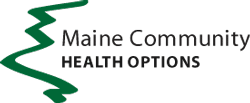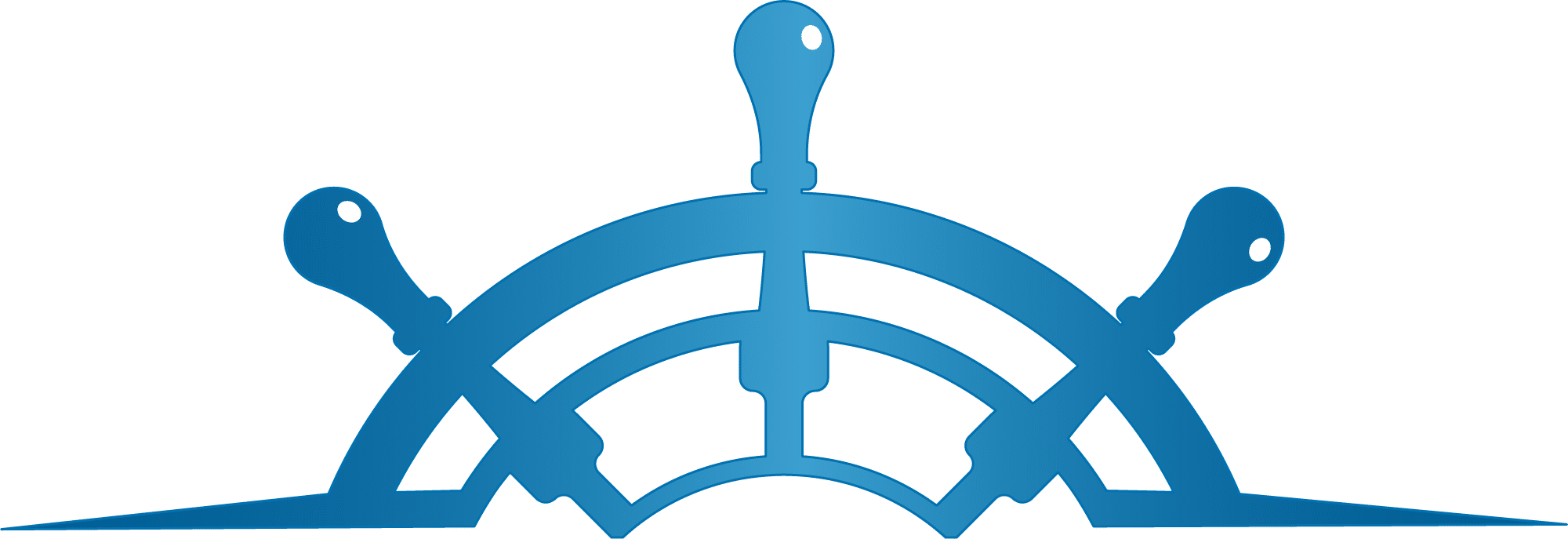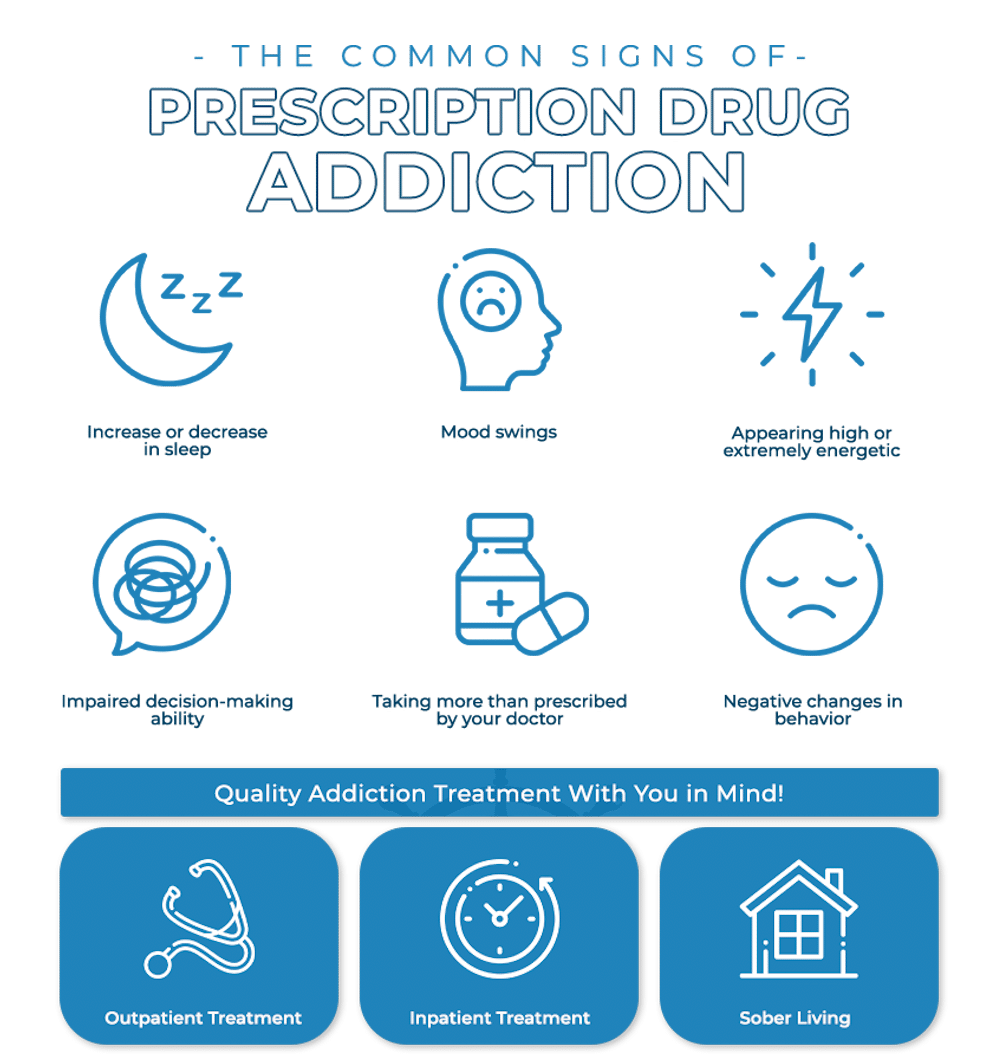When people take their medications at frequencies and dosages that are different from their doctor’s recommendations, they may be developing substance use disorders (SUD) and could benefit from prescription drug addiction treatment.
Apart from struggling with the far-reaching effects of prescription drug addiction, misusing these drugs can also increase the risk of fatal overdose. That’s why it’s important to learn about prescription abuse facts. If you or someone you know is in a situation where he or she is abusing prescription drugs, it’s best to seek help from a prescription drug rehab center. It’s not enough to be aware that a substance use disorder like this could be life-threatening. Dependency can set in, and substance use can quickly become compulsive. Even if people want to start on the path to prescription addiction recovery, they might have trouble stopping their drug use.
We accept most private insurances







What Are Prescription Drugs?
The first known use of the term “prescription drug” was in 1872. The medical definition of a prescription drug is “a drug than can be obtained only by means of a physician’s prescription.” However, we know that people are illegally obtaining prescription drugs without a prescription.
In the U.S., the Federal Food, Drug, and Cosmetic Act defines which substances require a prescription to be dispensed at a pharmacy. The federal government authorizes doctors of any specialty, physicians, nurse practitioners, veterinarians, dentists, and optometrists to prescribe controlled substances. Discover more about prescription drugs by learning prescription drug abuse facts.
Why Do People Abuse Prescription Drugs?
Adults and teens abuse prescription drugs for a number of reasons such as:
- To get high or feel good
- For relieving tension or relax
- To reduce appetite
- For energy and alertness
- To experiment with the mental effects of the drug
- To prevent withdrawal from the drug
- For socialization or to be accepted by peers
- To improve academic and work performance
What is Prescription Drug “Misuse”?
Misuse of prescription drugs means:
- taking an incorrect dose
- taking the wrong drug at the wrong time
- forgetting a dose
- stopping the use too soon
- taking a medication in a manner or dosage not meant by the doctor who prescribed it
- taking someone else’s prescription (even if it’s for a legitimate medical reason like taking a friend’s prescription for your backache)
- to feel euphoria
What Are Risk Factors for Prescription Drug Addiction?
Usually, the abuse of prescription drugs begins in teens or young adults but it can start at any age. Some risk factors for the abuse of prescription drugs are:
- Present or past addiction to other substances (this includes tobacco and alcohol)
- Pre-existing mental health issues
- A family history of substance abuse or addiction
- A social environment where there’s drug use or peer pressure
- Easy access to prescription drugs, having medications available at home in a medicine cabinet
- Having little knowledge about prescription drugs and their potential for harm
What Are Commonly Abused Prescription Drugs?
Opioids
Opioids produce a feeling of euphoria. They are frequently prescribed for pain. Signs and symptoms of opioid misuse include:
- Euphoria
- Lethargy
- Drowsiness
- Confusion
- Dizziness
- Vision changes
- Headache
- Seizures
- Problems breathing
- Nausea
- Vomiting
- Constipation
- Behavior or personality changes
Commonly abused opioids include:
- Oxycodone (OxyContin)
- Codeine
- Fentanyl
- Meperidine (Demerol)
Central Nervous System (CNS) Depressants
These drugs are sometimes called tranquilizers and their purpose is to have a calming effect. Some signs and symptoms of misuse of CNS depressants include:
- Drowsiness
- Lethargy
- Irritability
- Confusion
- Memory problems
- Dizziness
- Headache
- Changes in vision
- Loss of coordination
- Personality or behavior changes
Commonly abused depressants include:
- Alprazolam (Xanax)
- Clonazepam (Klonopin)
- Diazepam (Valium)
Stimulants
Stimulant drugs increase your brain activity. Doing that helps to increase your alertness and energy levels. Symptoms of stimulant abuse include:
- Euphoria
- Aggressiveness
- Paranoia
- Hallucinations
- Appetite suppression
- Weight loss
- Rapid heart rate
- Dilated pupils
- Vision changes
- Headaches
- Nausea
- Vomiting
- Personality or behavior changes
Commonly abused stimulants are:
- Amphetamine (Adderall)
- Methylphenidate (Ritalin)


What are Common Signs of Prescription Drug Addiction?
- Forging, stealing, or selling prescriptions
- Taking more than prescribed by your doctor
- Excessive hostility and mood swings
- Increase or decrease in sleep
- Impaired decision-making ability
- The appearance of being high, sedated, or extremely energetic
- Seeming to frequently “lose” prescriptions, or asking for early refills so more prescriptions will be written
- Getting prescriptions from more than one doctor (sometimes called “doctor shopping”)
If you or a loved one is abusing prescription drugs and exhibiting multiple signs of prescription drug addiction, you should receive prescription drug addiction treatment immediately.
Prescription Drug Abuse Facts
Prescription drug use in the United States has increased in the last few decades. Many Americans are misusing prescriptions intentionally to become intoxicated. Millions of Americans older than 12 years old have used drugs recreationally. Some are now dependent on medications that they didn’t realize were addictive.
It’s not uncommon for physicians to prescribe pharmaceutical drugs to their patients. Unfortunately, some of these patients become dependent and eventually develop addictions. This process can occur quickly or slowly, sometimes after the first use of a drug. Most people don’t notice when they shift from recreational use to drug abuse.
What Is a Prescription Drug Rehab Center?
A prescription drug rehab center can help people struggling with being dependent or addicted to prescription drugs, such as opioids, benzodiazepines, and other addictive drugs. Staff at our facility will evaluate clients by looking at their general health, asking about addictive behaviors, and diagnosing co-occurring issues. Our rehab center will also allow clients to access medication-assisted treatment (MAT) if necessary to heal from addiction.
Which Clients Need Prescription Drug Addiction Treatment?
Clients attending our prescription drug addiction treatment program here at Casco Bay Recovery can be either male or female, young or old. While that seems like a simple answer, getting those same clients to accept professional help at a prescription drug rehab center can be difficult.
These clients may think that their addictive habits are harmless, mainly because the substances that they’re using are those that physicians that they trust have prescribed. However, abusing prescription drugs can result in serious consequences. Often, there’s no better way to start a path to recovery than getting professional help.

Treatment Programs
The length and type of treatment program depend on your needs and requirements. Treatment facilities frequently offer several levels of care including:
Inpatient or Residential Treatment
As the name implies, an inpatient or residential treatment facility becomes your residence for the duration of your treatment. Residential treatment programs offer 24-hour medical supervision and a way to get away from the people and places that might trigger your drug use. These treatment programs are safe and secure and in structured drug-free environments.
Outpatient Treatment
Such treatment programs allow their patients to live at home and commute to and from their homes to rehab centers regularly to receive the treatment that they need. Outpatient treatment programs are for people that have good support systems at home. Below are the different types of outpatient treatment programs.
Partial Hospitalization Program (PHP)
A PHP offers basically the same type of intensive treatment as a residential treatment program except you return to your home at the end of each day. PHP treatment sessions occur around 5 to 7 days per week for about 5 – 8 hours per day.
Intensive Outpatient Program (IOP)
IOPs require less time spent at treatment facilities. Usually, IOP patients can expect to attend counseling sessions 3 times a week for about 3 hours each day. Often, IOP patients have the flexibility to schedule sessions around their work or school commitments.
Standard Outpatient Program (OP)
A standard outpatient program provides therapy and counseling sessions 1 or two times a week. OPs are a good way to continue treatment after completing a higher level of care.
Sober Living Residence
Sober living residences provide safe spaces to live while transitioning back into a regular lifestyle free of drugs. Some people choose to live in sober living residences and attend outpatient programs, creating a sort of de facto residential situation.
What Can You Expect From Prescription Drug Rehab Programs?
Clients struggling with prescription drug addiction usually need help from professionals and specialists, hence the reason for prescription drug addiction treatment. For one thing, individuals who suffer from prescription drug addiction often need to undergo medical detox to get into addiction treatment programs. Quitting prescription drug abuse can have negative medical consequences though, which can only be prevented or reduced by professional help.
After detox, our prescription drug rehab program here at Casco Bay Recovery will require clients to maintain their sobriety while undergoing behavioral therapies and other forms of care. Clients have the opportunity to work with therapists to understand how their substance use disorders came about and what they can do to keep them from coming back and taking over their lives
Addiction Therapy at Casco Bay Recovery
Casco Bay offers therapeutic options such as:
Cognitive-Behavioral Therapy (CBT)
CBT will help you identify dysfunctional thinking patterns that are affecting your behavior. You’ll learn techniques to help you adjust your thinking.
Dialectical Behavior Therapy (DBT)
DBT is a form of CBT that focuses more on accepting one’s thoughts and emotions so that they don’t have the power to cause one to exhibit the negative behavior of abusing substances to cope with life’s stresses.
Family Therapy
Because addiction affects the whole family, family therapy is important for all individuals close to the person with addiction to understand addiction. Family therapy also helps close family members of people with addiction learn how to interact with their addicted loved ones in healthy manners.
Group Therapy
Group therapy is essential in addiction treatment. Through group therapy, one will see issues from the perspective of other people who are also going through treatment.
Individual Therapy
This one-on-one therapy allows you to build a trusting relationship with your counselor. INdividual therapy in prescription drug addiction treatment also allows you to explore what may be behind your drug abuse habits.
After going through a prescription drug addiction treatment program, each client here at Casco Bay should be aware that relapse is a possibility even with an addiction aftercare plan in place. In fact, studies show that most people with a prescription painkiller addiction that go through addiction treatment relapse. Thus, don’t be too hard on yourself if you do relapse initially after prescription drug addiction treatment. Just simply attend prescription drug rehab again.

Learn More About Casco Bay Recovery Today
If you are looking for a prescription drug addiction treatment in Portland, Maine, contact Casco Bay Recovery today. In addition to an intensive partial hospitalization program for prescription drug addiction treatment, we can provide you with:
- Intensive outpatient treatment
- Outpatient treatment
- Sober living
- Aftercare programs-to help you maintain your drug-free life
At Casco Bay, we understand what a person needs to overcome prescription drug addiction. That’s why we provide only the best prescription drug addiction treatment around.

